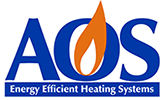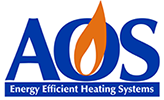AOS Blog
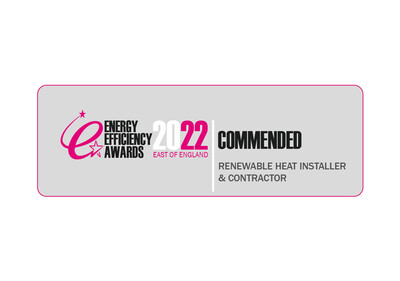
The Energy Efficiency Awards 2022
AOS are thrilled to announce that we have been commended for The Renewable Heat Installer & Contractor of the Year for the East of England at the recent Energy Efficiency Awards 2022.
As photographed to the left our director Tony Owen collected this prestigious award on Thursday 23rd June 2022.
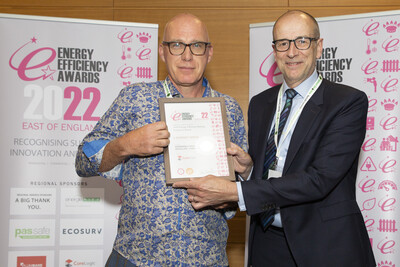
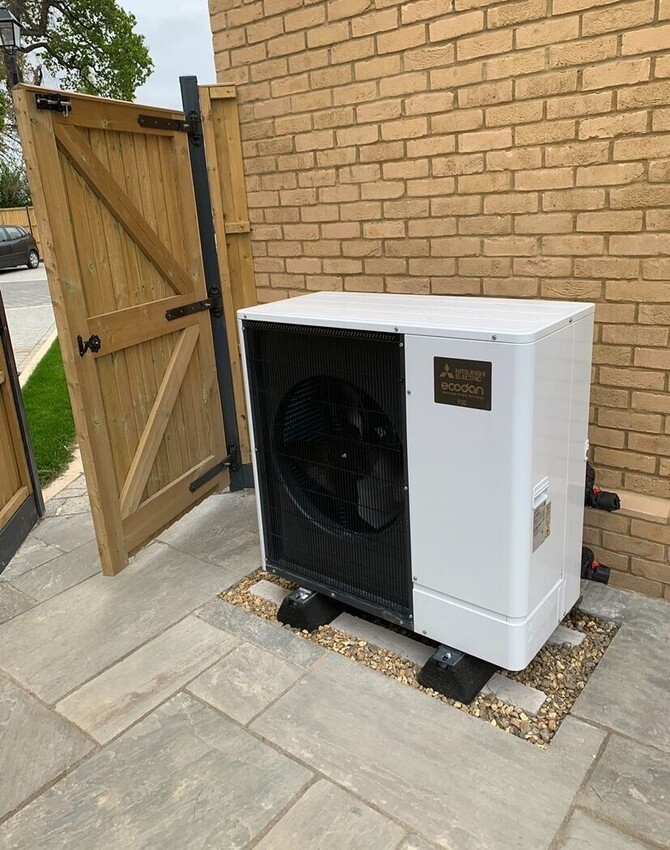
Why Choose an Air Source Heat Pump?
Wednesday 15th June 2022
If you are looking for a better way to heat your home, you might want to consider having an air source heat pump installed. This is an increasingly common form of heating in the UK and beyond, and with good reason as you are about to see. But first, what exactly is an air source heat pump anyway?
What Is an Air Source Heat Pump?
An air source heat pump is a highly efficient way of heating a home. The device essentially extracts heat from the air outside the home and uses it to heat the interior of the home. It has a fan that sucks in the exterior air and this air is then blown over the refrigerant-filled tubes, thus being warmed by the air.
What Are the Benefits of An Air Source Heat Pump?
So why might you want to choose an air source heat pump over other heating options? Well, one reason is that it is a much more environmentally friendly option than many other heating options. They are also cheaper to run than many alternatives, and they can be used in every type of home, so you can have it installed no matter what.
Plus, it tends to take up less space compared to more traditional heating systems, saving you a lot of space for something else.
To find out more about air source heat pumps, or to book in for your installation today, get in touch. We are Hertfordshire & Cambridge’s number one installer of air source heat pumps.
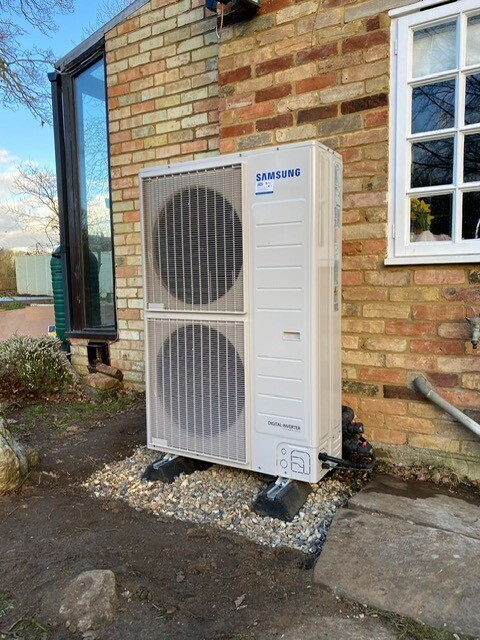
3 Advantages of Having an Air Source Heat Pump
Tuesday 24th May 2022
There are many advantages of having an air source heat pump in your home. The following blog will discuss some of the most important benefits of these systems. Heat pumps are becoming more and more popular each year, and for a good reason! They provide homeowners with several valuable benefits that can save them money and make their homes more comfortable.
Heat Pumps Are Very Efficient
One of the most significant advantages of heat pumps is that they are highly efficient. In fact, they are often two to three times more efficient than traditional heating and cooling systems. This means that you can save a significant amount of money on your energy bills each month. Additionally, because heat pumps use less energy, they also help to reduce your carbon footprint.
Reduces Your Homes Energy Bills
Air Source Heat Pumps help to reduce the costs of your energy bills, especially in place of conventional electric, oil or LPG heating systems.
Eligible for Government Funding
The Boiler Upgrade Scheme allows UK homeowners to apply for a one-off £5,000 voucher for replacing less efficient gas boilers with air-source heat pumps.
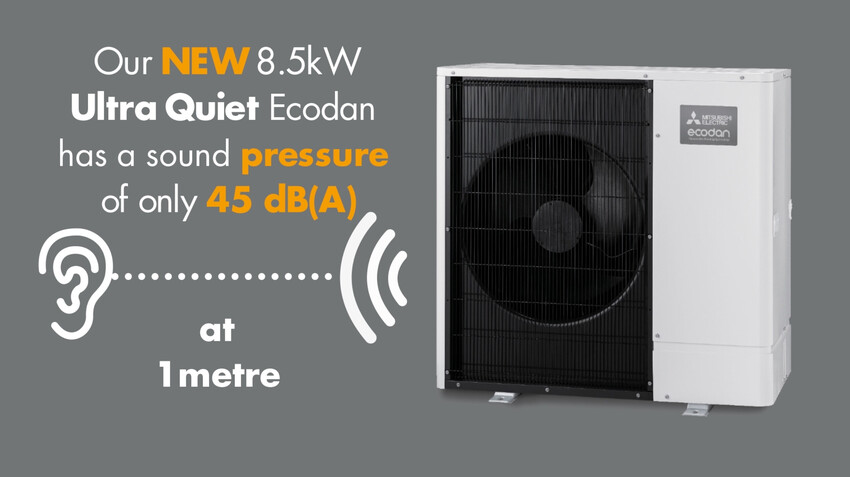
Are Air Source Heat Pumps Noisy?
Tuesday 3rd May 2022
Devices which transfer available heat from the air surrounding a property are called heat pumps. An efficient pump will increase the temperature of this air to make it a useful source of energy for a home or property. All heating products make some sort of noise, but heat pumps are usually quieter than fossil fuel boilers.
Most Modern Heat Pumps Are Not Noisy
Heat pumps are issued in a wide range of sizes and shapes, which can ultimately have an impact on how noisy they are. Luckily, there are numerous government guidelines in place, which now mean that many modern air source heat pumps are much quieter than the older models.
What Might an Air Source Heat Pump Sound Like?
Depending on the type of installation, you can expect different sounds for different air source heat pumps. However, the most common sound is much like a very low whirring if they're working as they should be.
Your heat pump may make a louder, or more aggressive noise if there is a malfunction with the system. In this case, you should seek out advice from a professional heating engineer in your local area.
Mitsubishi Electric's Ecodan Ultra Quiet Heat Pump is the market leading low noise level heat pump which eliminate the need for planning permission and maximises installation options.
Get in Touch With Our Heating Team
If you're looking for a new heat pump, why not get in touch with one of our experienced heating engineers? As well as providing full installation, we can also provide you with maintenance tips for the future and how to make the most out of your new heating pump. Contact our friendly team today for a more efficient air source heat pump for your home or business.
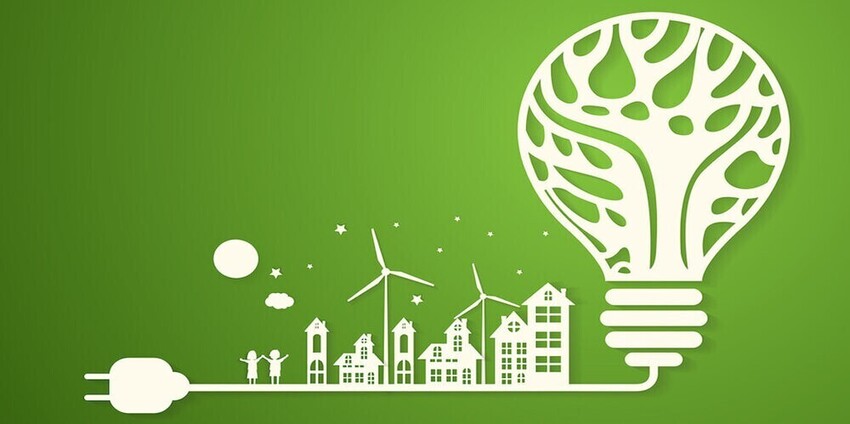
How Efficient Are Heat Pumps?
Thursday 17th February 2022
There are a few different options to choose from when it comes to heating your home. You can go for a gas boiler, an electric heater, or a heat pump.
Heat Pump Benefits
Of these three choices, the heat pump is the most efficient. It’s up to four times more efficient than gas boilers and electric heaters! So, if you’re looking for a way to heat your home that won’t cost you a fortune, a heat pump is the best option.
Heat pumps work by extracting warmth from the environment and transferring it into your home. They can remove warmth from the air, water, or ground. This makes them incredibly versatile – they can be used in any climate and any type of home.
One of the main benefits of using a heat pump is that you can save a lot of money on your energy bills. You could save up to £600 per year! And because heat pumps are so efficient, you won’t have to compromise on comfort – you’ll be able to keep your home warm and cosy all winter long.
If you’re thinking about installing a heat pump in your home, make sure to get in touch with an installer. They’ll be able to advise you on the best type of heat pump for your needs, and they’ll install it for you quickly and efficiently.
So, if you’re looking for a way to heat your home that’s efficient and affordable, a heat pump is a perfect choice. Contact us today to find out more!

What is the life expectancy of an air source heat pump?
Thursday 17th February 2022
Firstly Air Source Heat Pumps are incredibly resilient and most manufactures offer up to 7 year warranty which is a huge plus. On average Air Source Heat Pumps last for between 10 - 15 years however many systems have far exceeded this time frame over the years.
Due to this long lifespan by the time you will require a replacement heat pump your system will have more than paid for itself and you will be in profit.
Heat pumps also last just as long, if not longer than a traditional gas boiler, they are efficient, and they ensure that your home is comfortable at all times.
With regular maintenance, you can ensure that your heat pump lasts for as long as possible and you don't have to worry about it failing on you.
It isn't hard to replace your heat pump and it is a a lot quicker than a full system installation as all of the other components are already installed. normally a heat pump only replacement can be completed within 1 day.
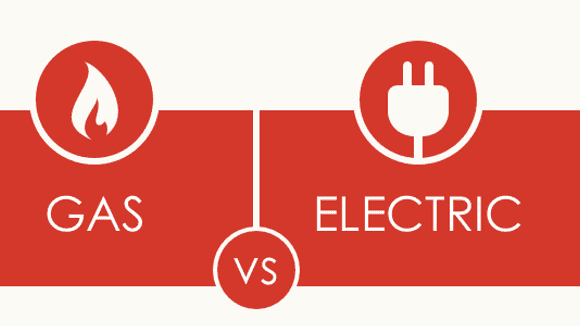
What is the difference between a boiler and a heat pump?
Friday 28th January 2022
Boilers have long been established as the conventional way in which the vast majority of homes are heated, and there is a very well-established industry providing boiler repair, in addition to vast numbers of heating engineers who are experienced in boiler service requirements, among other things.
In recent times, though, heat pumps have arrived on the scene as an alternative to gas and oil boilers, and they have been rapidly growing in popularity. So what are the real differences between boilers and heat pumps?
Heat pumps
The key benefit of heat pumps is that they are a source of renewable energy and have a significantly lower associated carbon footprint.
Heat pumps also have a significantly better COP (Coefficient of Performance) score than boilers, with each unit of energy put into the heat pump returning as much as three times the energy output as heat.
Heat pumps can also be installed under a new UK government grant scheme, where each household is entitled to £5,000 to install low-carbon heating systems.
Boilers
Boilers are less energy-efficient when heat pumps are performing at their best.
Boilers run on gas or oil, and prices may be raised to meet the government’s carbon targets.
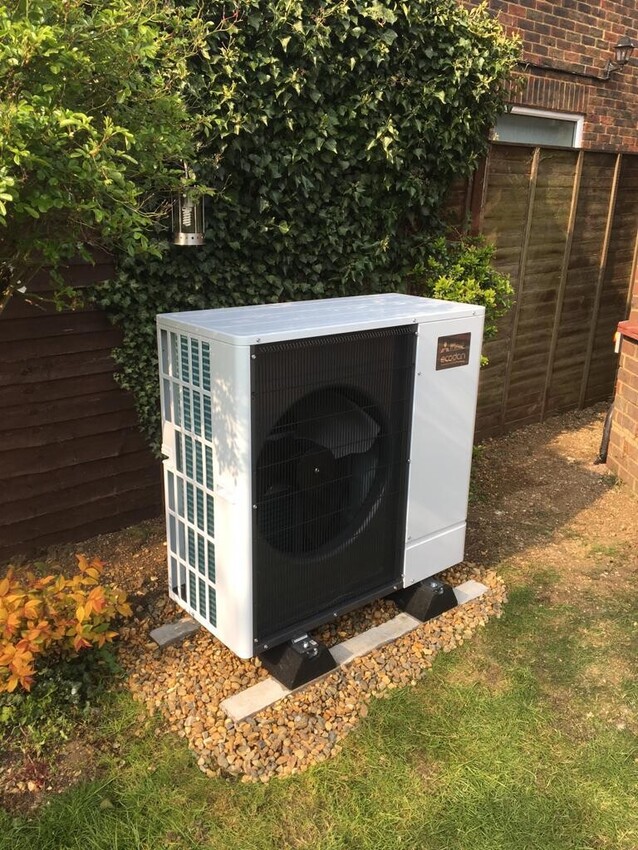
Is a Heat Pump right for heating my house?
Thursday 15th December 2021
There is a lot of talk about heat pumps right now. Many people believe they are the best method to meet our climate change targets and get to net-zero by 2050. The government intends to install 600,000 of them into UK homes every year.
Heat pumps are undoubtedly efficient and will contribute to reducing carbon emissions.
How do heat pumps work?
An air-source heat pump resembles an air conditioning unit installed outside the residence; however, it works similarly to a refrigerator in reverse and functions as a boiler, in that it produces hot water. However, unlike boilers, heat pumps do not generate heat; instead, they transfer it from one location to another.
A fan unit is included with air source heat pumps, which draw heat from the outside air. After that, the heat is concentrated and used to make hot water. The hot water must be stored inside the residence in a hot water cylinder to feed radiators, taps, and showers. The system is powered by electricity, and copper plumbing connects the two units.
Is a heat pump suitable for your house?
A well-insulated dwelling with a garden is ideal for a heat pump. The correct heat delivery system and hot water cylinder can be easily included if the heat pump is integrated into the build from the start. Heat pumps and other renewable heating systems are set to become the default heating system from 2025 when connecting a new build home to the gas grid is no longer an option. Of course, not all existing properties are well-insulated, but it is advised to get this sorted ASAP as the benefits of a heat pump are plain for everyone to see.
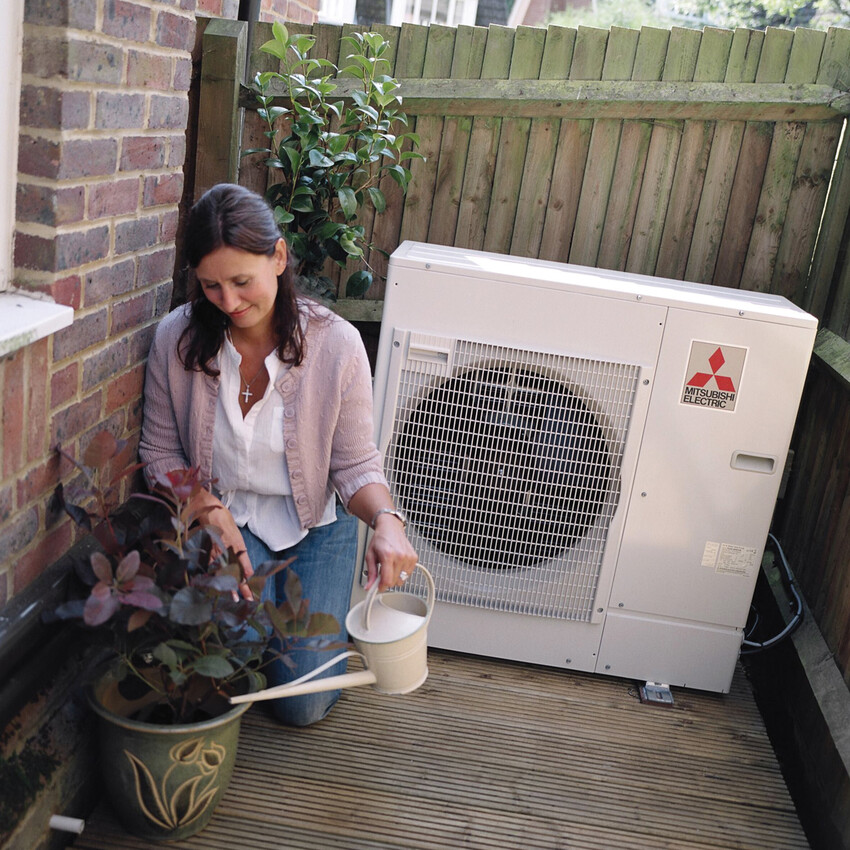
Everything You Need To Know About The Government’s Upcoming £5,000 Heat Pump Grant
Friday 19th November 2021
Following the closure of the Green Homes Grant earlier in 2021, the latest Government scheme to help build carbon-neutral homes has been revealed. But what exactly is the £5,000 Air Heat Pump Grant?
Our simple guide will answer all the key questions, including:
• What is the Heat Pump Grant?
• Who is eligible for the Heat Pump Grant?
• When does the Heat Pump Grant come into effect?
• What happens when the heat pump costs more than the limit?
• How do I apply for the Heat Pump Grant?
What is the Heat Pump Grant?
In essence, the Heat Pump Grant is a scheme that allows UK homeowners to apply for a one-off £5,000 voucher for replacing less efficient gas boilers with air-source heat pumps. The scheme is ready to launch in April 2022.
However, homes that need to source heat from the ground can have this increased to £6,000 so they can save even more.
What happens when the heat pump costs more than the limit?
The grant isn't designed to cover the full costs of an installation. In fact, the average household can expect to pay between £10,000 and £12,000. However, this should bring the costs down to the same level as replacing a gas boiler.
So, you get an eco-friendly and efficient upgrade at the cost of a standard upgrade package. In turn, this lets you save the environment as well as money.
Who is eligible for the Heat Pump Grant?
Most homeowners and landlords (public and private) can apply for the £5,000 one-off Government grant. The only notable exceptions are new build properties and social housing while the scheme is also limited to England and Wales.
How do I apply for the Heat Pump Grant?
With the scheme limited to 30,000 homes per year, it's advised that you apply early. However, it is not a grant that you can apply for directly through the Government. You will need a heat pump installer to act on your behalf to liaise with energy regulator Ofgem.
AOS Heating are happy to offer this service to ensure that your low-carbon heat pump is as efficient for your pocket as it is for the environment. Contact us to learn more today.
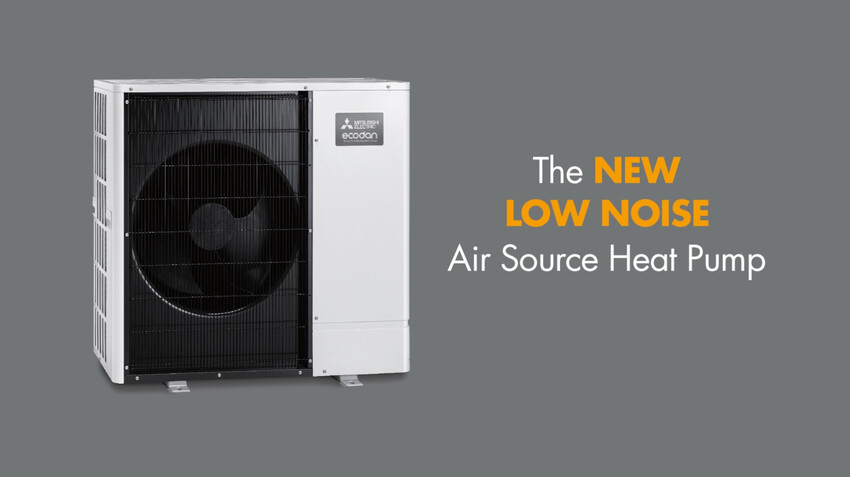
Why air source heat pumps are increasing in popularity?
Monday 18th October 2021
As people aim to be more eco-friendly, renewable energy sources for the home are becoming more popular. One of these green energy options is an air source heat pump. These pumps take heat from the air outside and use it to heat your home and hot water. They can help you to make your energy use more efficient, and you can save money while being kind to the environment.
Air source heat pumps are increasing in popularity. In some countries, such as France, Italy, and Sweden, air source heat pumps are already very popular. And now they are becoming a more common choice for homes in the UK too. There are several great reasons people are choosing to have them installed in their homes.
Benefits of Air Source Heat Pumps
Air source heat pumps deliver multiple benefits. You can reduce your home energy bills when you install one and cut down on your home's carbon emissions too. The energy from your heat pump will heat your hot water, so you don't need to use gas, electricity, or oil.
It doesn't need to be hot for an air source heat pump to work. It can extract heat from the air even when the temperature is as low as -25℃. You get efficient, green energy and it doesn't even require a lot of space to install. No planning permission is required, so it's easy to get an air source heat pump installed in your home and start saving money on your bills.
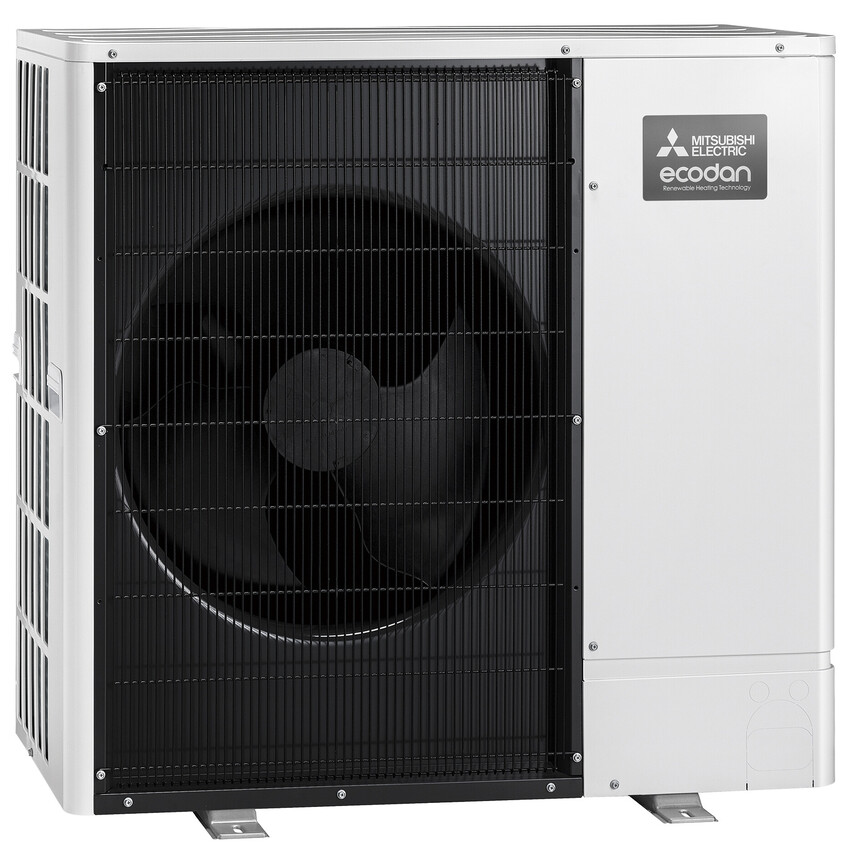
How does an Air Source Heat Pump work?
Saving money on your energy bills might seem like a real challenge. It can be without the right knowledge of what energy systems to use in your home. However, this post will assist you in an alternative way to heat your home, which can help you save money and live more sustainably.
You might wonder how exactly to achieve sustainability and money-savings when heating your home. The answer is an air source heat pump.
What is an air source heat pump?
An air-source heat pump takes in external air and uses a compressor to heat it up before releasing it into the home. They are a way to reuse natural sources and heat your home for less.
How does an air source heat pump work?
Air source heat pumps work by using a compressor to heat up natural air. Instead of using gas, they use natural air to heat the home.
The following steps will help you understand its process.
1.The air pump absorbs the outside air and turns it into liquid. The liquid is stored at a low temperature.
2.The air is then turned into hot air through compressing it, which is performed using electricity.
3.This heat is then sent to radiators and can be stored in a water heating cylinder. This stored heat can be used for showers, baths, and taps.
Although an air source heat pump uses electricity to work, it uses a lot less energy to heat the home than a gas boiler. It is a renewable and less expensive way to heat your home.
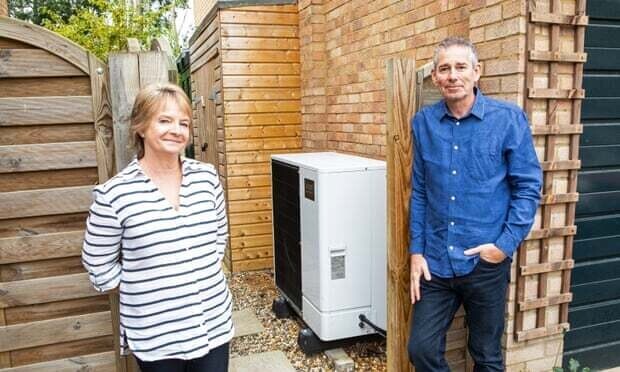
At home with a heat pump: 'It makes hot water when it's freezing outside'
Tuesday 17th August 2021 - AOS were featured in an article which appeared online in the Guardian newspaper.
Click here to read the full article
John and Carol Deed, Thriplow, Cambs
"We had an air source heat pump fitted in January 2020 and it has proven to be a really good decision," says John Deed, a former marketing executive in the car industry.
Deed and his wife Carol began considering home heating options for their detached four-bedroom 1970s house when it became clear their 25-year-old oil boiler was "on its last legs".
"We considered cost as well as environmental impact and this ruled out going with oil again - [it's] volatile in price, a pain for delivery and of course not good for the environment," he says. They settled on an electric heat pump to make the most of their green electricity tariff and planned solar panels, which they fitted over the summer. The house already benefited from cavity wall insulation, loft insulation and double glazing.
"The first pleasant surprise was how nice it was to have the whole house, which is about 1,700 sq ft, at 20 degrees all day, especially when Covid has confined us to our home for much longer than normal," says Deed. "The second pleasant surprise was the running cost."
After a hefty initial outlay, the couple's solar panels now generate more than enough electricity to run the Mitsubishi heat pump, compared with paying £900 a year for oil. The heat pump cost £14,000; the government grant of £8,400, to be paid over a seven-year period, leaves a net cost of £5,600.
"It's no more noisy than the boiler and quite how it makes piping hot water when the air temperature outside is freezing is a mystery, but we'll take that!"
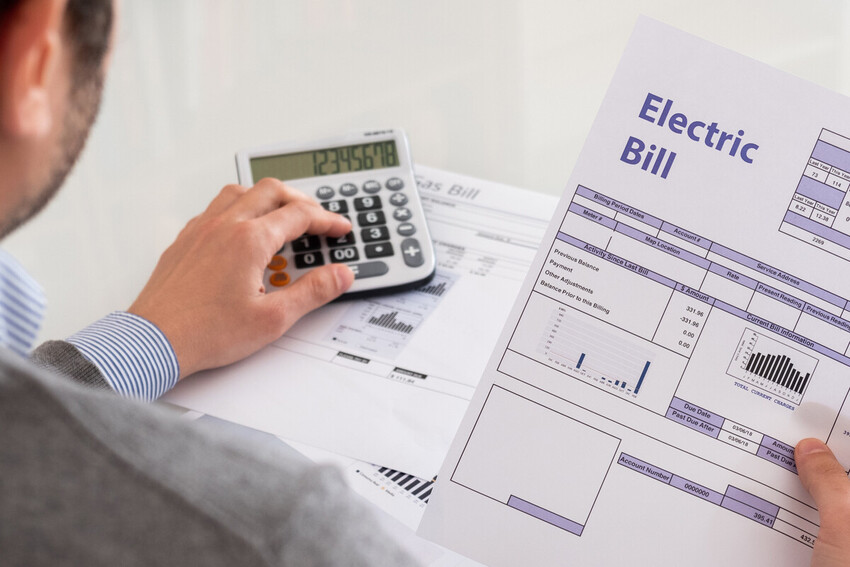
How to save money of your energy bills
One of the biggest questions we have during adult life is how to save money on our gas, electric, and water bills at home. Being more eco-friendly is an important feat for us these days, but also saving money on our bills is an important thing to consider.
Today we are going to take a look at some of the ways you can save money on your energy this year.
Use an air source heat pump
If you have never heard of a heat pump before - this can be a useful tool to install on the side of your home. An air source heat pump will absorb heat from the outside and use this to heat up your home naturally. They can also be used to heat up hot water and this can make a massive impact on your heating bills.
Use less water
Using less water is one of the most important ways that you can save energy at home. It takes a lot of energy for water to be brought to your home, heated up, and then taken back to the plant where it is sterilised. By using less water each day, you can save a pretty penny and also do some good to the environment.
Choose an eco-boiler
These boilers are engineered to protect the environment while also providing you with the hot water you need to heat up your home. Choosing an eco-boiler is a great way to save money on your energy bills and they are incredibly efficient.
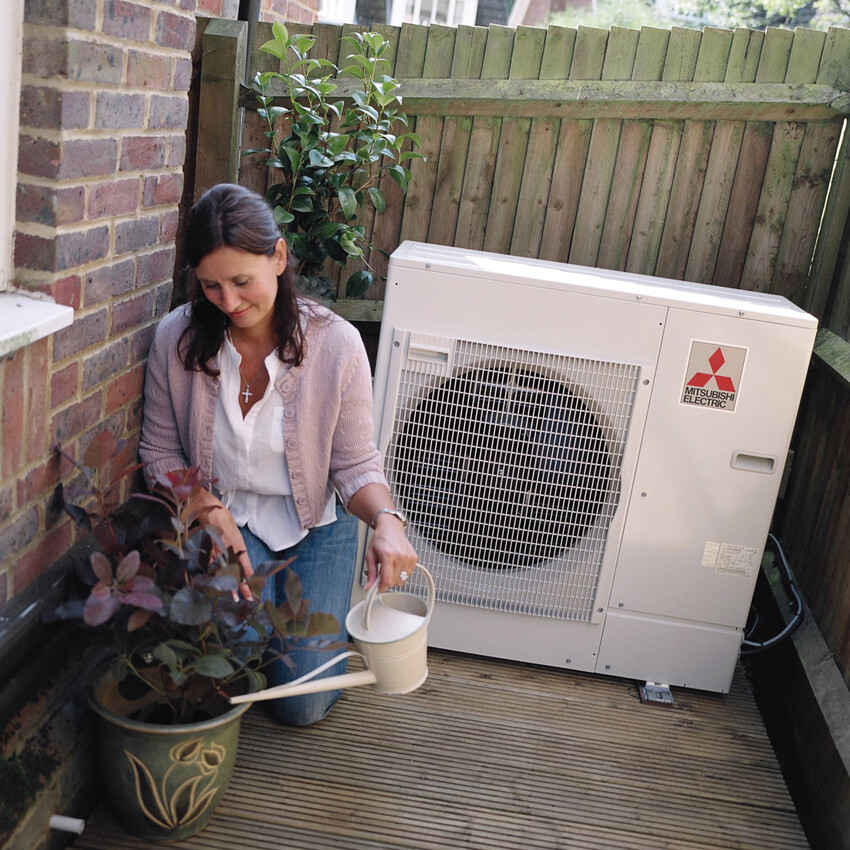
How An Air Source Heat Pump Works?
Using an air source heat pump to heat your home is more eco-friendly, more energy efficient, and can be highly cost-effective. Essentially, when using an air source heat pump, you can make your own – renewable – energy, thus saving money.
When you use an air source heat pump, the heat will be delivered to your home at a lower temperature than using an oil or gas boiler. Although this means such a pump will have to be run for a longer time to get up to the right temperature, it is still cheaper than using other kinds of heating. If you need to replace your boiler, a great way to make it more affordable to run would be to ensure the new boiler can use an air source heat pump. Of course, you’ll still need to ensure your home is adequately insulated, otherwise you’ll lose more heat than usual, however.
The air source heat pump uses a compressor that takes heat from the air and raises its temperature. Once it reaches the right temperature, the energy will be transferred to your heating system; this is essentially the opposite of how a fridge works. To get to the right temperature, the warm air is first turned into a cool liquid refrigerant, compressed, heated up, and turned back into liquid once it reaches a specific temperature. This liquid is your fuel which runs through your boiler and allows you to heat your home and hot water. You can safely store anything you don’t use.
You will need to use energy to make the pump work since it requires power, but when you offset this energy cost against the savings you can make using the air source heat pump, you should still save money using this eco-friendly method of heating a property.
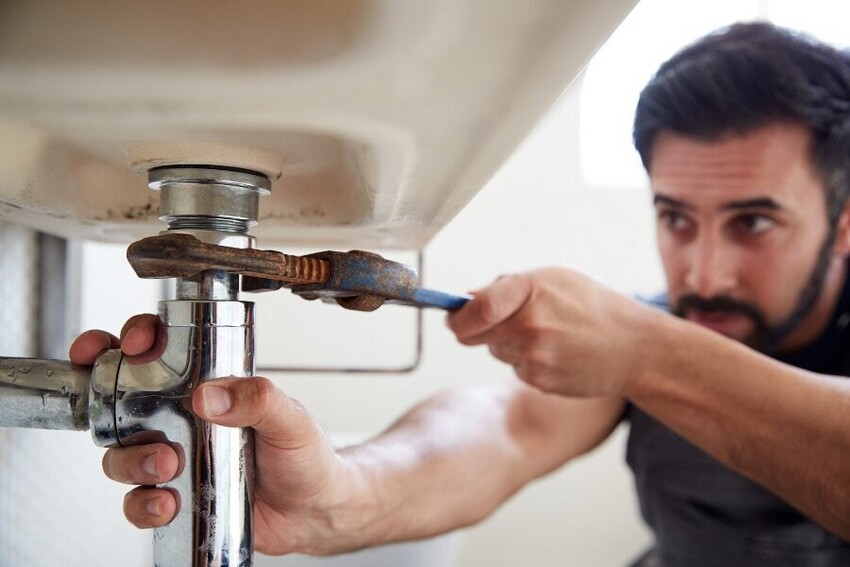
My boiler is leaking, what do I do?
When your boiler is leaking, you need to get it fixed as soon as you can. If there is damage to your boiler, it could be causing a number of problems. Finding and fixing the problem is a must. to ensure your boiler is efficient and functioning safely. There could be several causes for a leaking boiler, but the most important thing is to take immediate steps to try and resolve the problem.
Prevent Leaking
You shouldn’t try fix your boiler yourself, but you can do some things to address the problem. Start by turning off your water supply so that no more water is able to leak. Switch your heating too if you haven't done so already. This will allow you to clean up any water that has leaked without worrying that it's just going to keep coming. These simple steps that you can use to take quick action.
Call a Qualified Heating Engineer
It's always best to have a qualified heating engineer carry out servicing and repairs for your boiler. Once you have switched off the water and heating, make a call to an emergency heating engineer to get them to come and diagnose the problem, as well as make the required repairs. It's better not to wait when your boiler is leaking so you're not left without hot water or heating for too long.
Don't delay if your boiler is leaking. Get it repaired by calling in an expert as soon as possible.
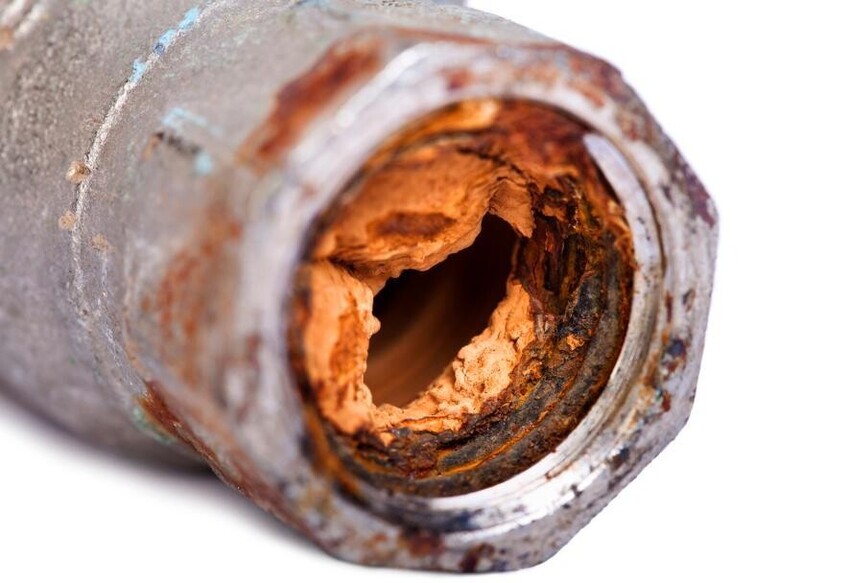
How hard water can affect my heating system?
Soft water has a low content of calcium carbonate, magnesium, and other minerals. Hard water contains a high amount of these substances. The large majority of homes in England have a hard water system. It’s fine to drink water with a high mineral content, but it’s not the best water for a heating system.
How might hard water affect my heating?
Calcium and magnesium turn into hard deposits of limescale. These cause damage to the water system because they cause blockages. When your heating system is full of limescale your system has to work harder to heat your property. The result is often that the system overheats and eventually breaks down. At first, you might notice that your water doesn’t get very hot, or that the pressure is low.
Hard water causes various problems including:
• Your home will be less energy efficient.
• Your bills will be more expensive.
• Your property may be too cold.
• The water pressure may be too low.
How can I improve my heating system?
To improve your heating system, use a limescale remover to descale your boiler. If you’re still having issues it’s best to call in the experts. Heating engineers can provide many different solutions, to remove hard water from your heating system. To remove limescale from your radiators and pipes, you may require a ‘power flush’. The solution works by flushing a mixture of water and chemicals through your heating system.
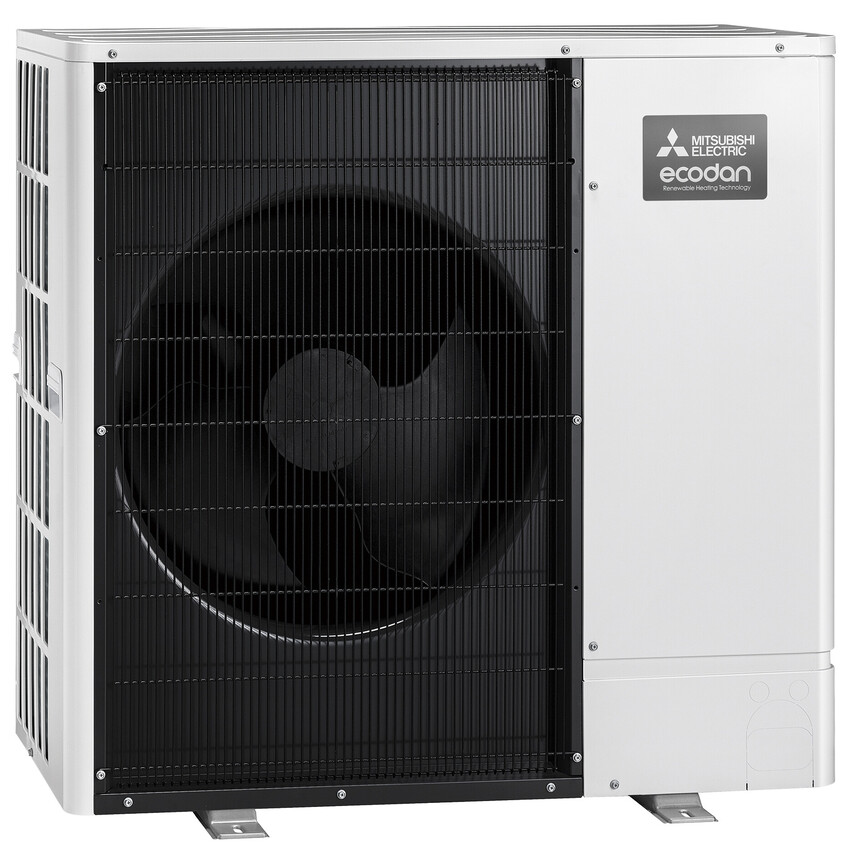
What are Heat Pumps?
An air source heat pump extracts heat from the outside air in the same way that a fridge extracts heat from its inside. the system extracts heat from the air even when the temperature is as low as -15° C. Heat pumps require electricity to run, but the heat they extract from the air is constantly being renewed naturally.
Heat pumps come with multiple advantages for your home. Pumping the heat uses less electricity as compared to when electricity is solely used to convert it. During the summers, the cycle can be reversed and the unit acts like an air conditioner.
Heat pumps are rising in popularity in the UK, and the government recently started to implement a number of new schemes, incentivising the transition to green living and alternative energy usage smoother and more affordable.
By combining heat pumps with solar panels, you can make your home self-sufficient and eco-friendly. Properly designed and installed heat pumps can be worth it, by regularly attain more than 300 per cent efficiency.
Interested in finding out more? Get in touch today.
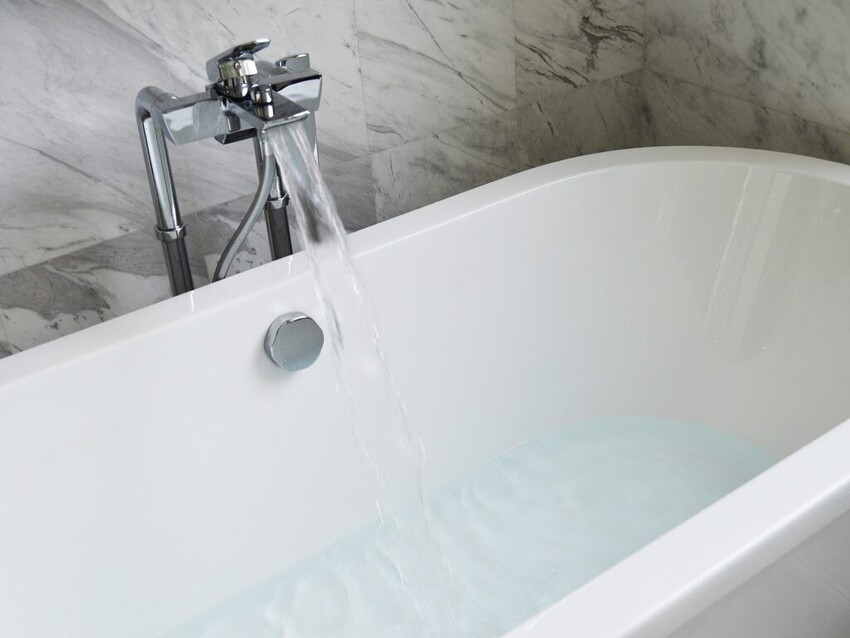
The difference between hard and soft water
We all use the terms “hard” and “soft” to describe the water that comes out of our taps, but the truth is that many of us don’t actually know what that means. Plenty of people wonder what the difference is between the two is and whether or not there are any issues associated with these different types of water. The difference between the two is actually very straightforward. The hardness or softness of water is measured by the levels of certain minerals contained within it.
Hard Water
Hard water is water that contains high levels of calcium and magnesium. This might sound concerning but it isn’t going to cause any real problems for your health. That said, you may notice minor things like slightly drier skin or an itchy scalp after washing your hair with hard water. You may also find that the hardness of the water can cause your clothes to wear out more quickly and leave calcium carbonate deposits on glasses and dishes after you’ve washed them. Water softening systems are designed to filter out these minerals.
Soft Water
Soft water is water with higher concentrations of sodium, or salt. This means that using soft water is often slightly better for your skin. Your clothes will often last longer using soft water and you won’t find any mineral stains on them. You may also find that the water pressure in your home is more consistent because soft water doesn’t leave mineral deposits in the pipes in the same way that hard water does.
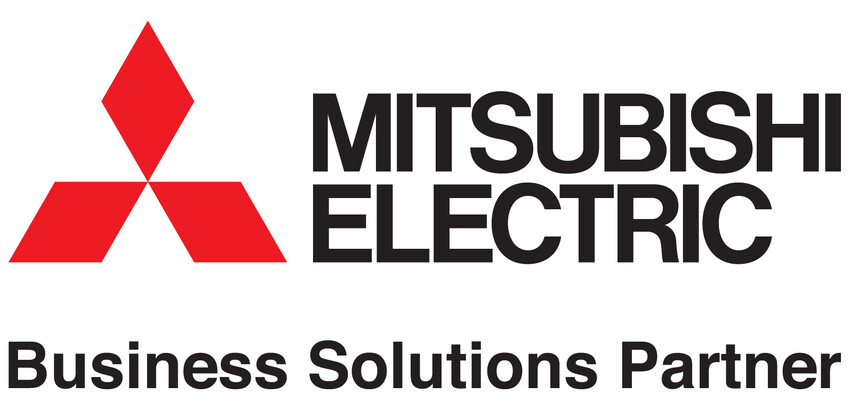
Mitsubishi Electric Case Study
Nigel Furr from Buckinghamshire has become the latest homeowner to move his property
away from oil-based heating to a renewable air source heat pump
Undertaking a property wide conversion, taking his two-bed bungalow to a four-bed chalet bungalow, Nigel decided to make the move to a renewable heating solution after the positive feedback he had received from other local homeowners who had already made the transition from oil to a heat pump.
"After talking to our neighbours, many of whom had been using oil previously, we researched air source heat pumps as a solution that was better for the environment and would also help us cut our energy costs." said Nigel.
Following a conversation with Mitsubishi Electric, Nigel was put in contact with their Business Solutions Partner, AOS Energy Efficient Heating Systems Ltd, who suggested an Ecodan
Heat Pump as a viable alternative to oil.
"As a Mitsubishi Electric Business Solutions Partner, we are confident that their products,
aftercare and back-up services are the best in the market," said Lee Wildego, technical surveyor
and contracts manager, AOS Energy Efficient Heating Systems Ltd.
"We have installed nearly 600 heat pumps over the last seven or eight years and each year the number we install is increasing. Homeowners are really starting to see the benefit of air source heat pumps and the calls we receive from new leads shows the understanding of the technology and benefit behind it."
With no access to the gas grid, Nigel decided not to install an unsightly and potentially dangerous oil tank on his property. The Mitsubishi Electric Ecodan 11.2kW was therefore the perfect alternative, with low maintenance and quiet running as recognised by the Noise Abatement Society.
Despite it being unlikely that Milton Keynes will be affected by significantly cold weather, Nigel is comforted in the knowledge that the Ecodan will be able to operate in outside temperatures as low
as -20°C. As a self-contained unit, only requiring water and electric connections, the Ecodan installation ensured that the renovation project was not delayed. Adopting the ultra-quiet version also means the heat pump doesn't emit noise levels above 53 dB(A).
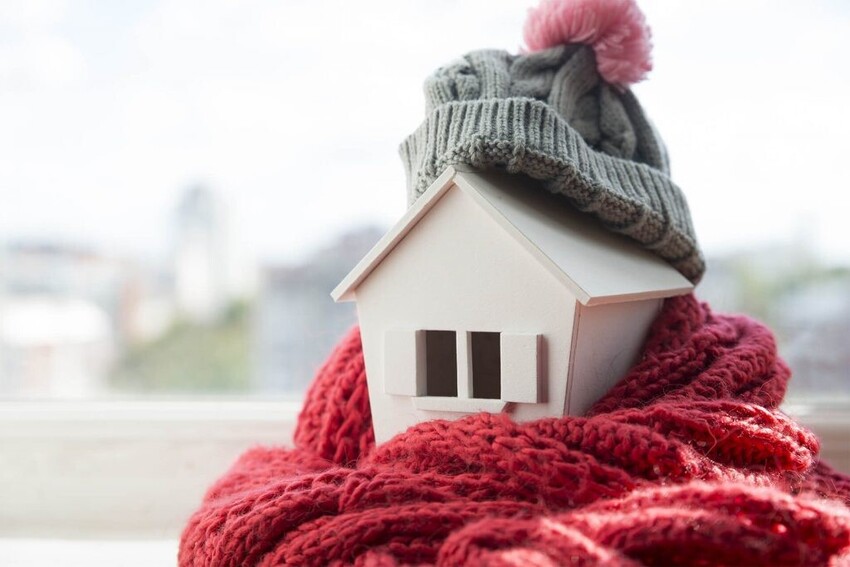
Why your home might not stay as warm as it used to
If your home no longer stays as warm as it used to, then things can get pretty uncomfortable pretty fast. And that’s before you even consider that this could be the prelude to a total boiler breakdown!
Where lost heat is concerned, you obviously want to think about external factors first. After all, gaps, single-glazed windows and faulty draught excluders are all some of the worst culprits for lost heat. If you’re sure these issues aren’t to blame, though, you’ll want to look a little closer to your central heating itself by considering potential issues including -
Boiler malfunctions
Boilers themselves aren’t bombproof, and issues here are guaranteed to trickle into your heating capabilities. Some of the primary problems with boilers include -
• Inefficiency due to excessive wear
• Faulty parts (mainly pumps and valves)
• Performance problems due to overuse
Each of these can result in an unsafe boiler setup, and a significant risk of breakdown if you don’t turn to the professionals for repair sooner rather than later.
Radiator problems
Radiators can also be prime no-heat culprits, with everything from clogging to leaks preventing heat from spreading. It may be that you notice your radiator is only hot in certain areas, or perhaps it fails to heat up at all.
Again, experts are your best bet for overcoming this problem, as they’ll be able to inspect not only the issue but also its source. And that’s the best chance you have at enjoying heat again in no time.
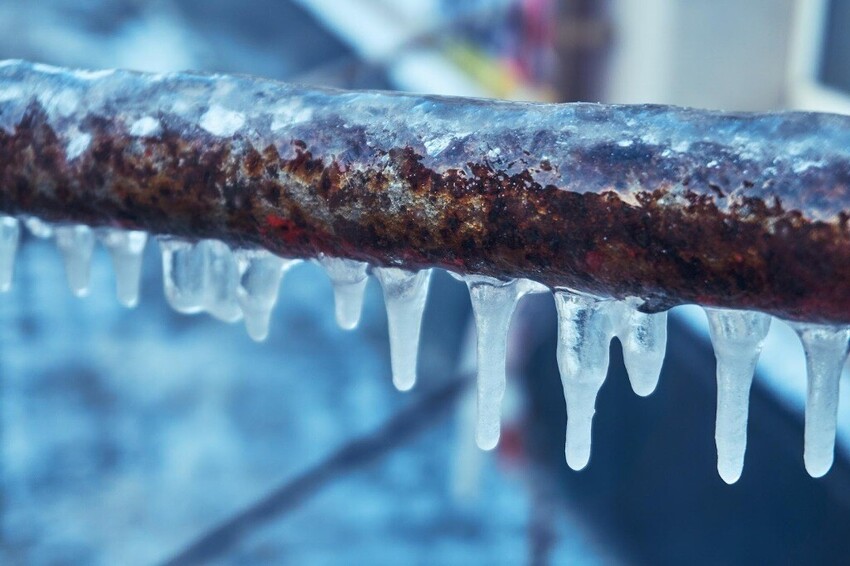
What to Do If Your Water Pipes Freeze
The ideal approach to dealing with freezing pipes is to anticipate the issue when winter approaches. However, when the unthinkable occurs, you will need to act quickly to limit the extent of damages and reduce the cost of fixing. Although it’s safer to refer to a professional, you can keep these tips in mind to thaw your frozen water pipes and avoid extensive damage. Here is what to do.
1. The first step is to keep your tap open to allow the melting water to pass. When you begin the thawing process, the water and steam generated will require an opening to allow discharge. Doing this would prevent a leak from occurring.
2. Apply heat to the frozen pipe by wrapping an electronic heating pad around it. You can also use towels soaked in hot water. When you are using an electronic heating pad, never leave it unattended to avoid any fire outbreak.
3. Keep applying the heat until the water starts flowing like normal. After effectively defrosting your pipe, turn on the faucets in your home to check for any other frozen water pipes.
4. Frozen pipes behind the walls can be difficult to melt and may require expert help to repair. However, to offer an immediate solution, you can increase the temperature in your home to make it warmer for pipes to thaw till help arrives eventually.
5. Avoid using kerosene or propane heaters or a blowtorch to defrost your pipes. Avoiding these will save you from any unwarranted fire hazards.
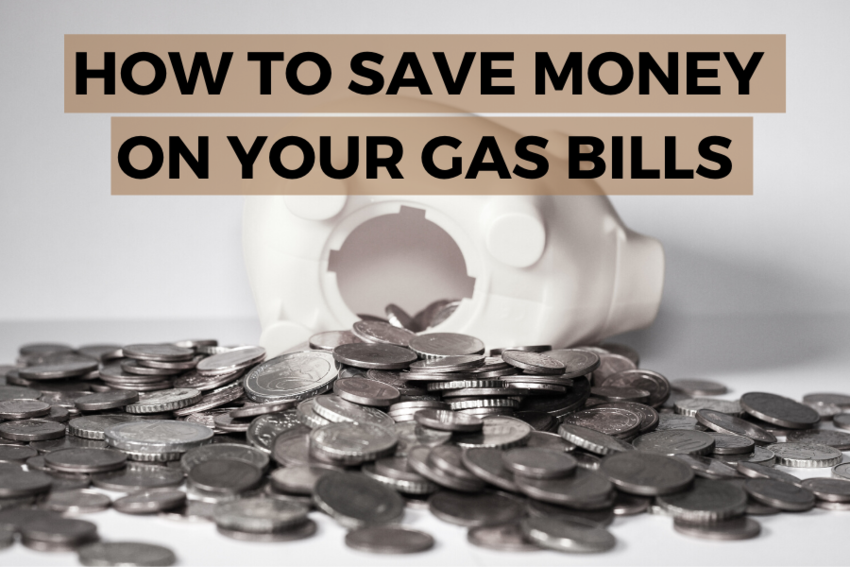
How to save money on your gas bill
If you’re trying to cut costs at home, then your gas bill is a good place to start. The gas bill is often one of the highest home costs, but there are some things you can do to lower your gas bill, without having to make big or expensive changes to your home.
1. Turn down the thermostat. Dropping the temperature by only one degree can save energy and money, without feeling any difference.
2. Don’t dry clothes on your radiators. Covering the radiators lowers the amount of heat that the radiator can release, meaning the boiler has to run for longer to get the room to the same temperature, using more fuel.
3. Use a hot water bottle at night. It’s much cheaper than leaving the heating on.
4. Switch to a different supplier. You might be able to find a better deal, especially if you’ve been the same supplier for three or more years. You could also use a lower quote to negotiate with your current supplier.
5. Move your furniture away from your radiators. The foam that is in upholstered furniture works an insulator, preventing the heat from getting into the room.
6. Use the sun. This is the most readily available source of heat, and the cheapest. When the sun’s out, make the most of it by opening internal doors and letting the warm air move through the house.
7. Draw the curtains at night to keep warmth in and cold out. Tuck your curtains behind your radiators so you don’t lose heat out of the window.

Green Homes Grant
If you’re a homeowner or residential landlord who’s looking to reduce your energy use (and consequently energy costs), you should consider applying for a Green Homes Grant Voucher through the Green Homes Grant Scheme. Put simply, this is a government funded scheme that will contribute towards the costs of installing energy efficient improvements in your home. Some options available to you would include insulation your home to reduce your energy use or installing low-carbon heating to minimise the amount of carbon dioxide that your home produces.
If you apply for the scheme, you could receive a voucher that will cover two thirds of the cost of any eligible home improvements you carry out. This sum is capped at £5000, but you can make a whole lot of positive changes to your property for this amount of money! It’s worth checking whether you or anyone in your household receives benefits that could cover 100% of the cost of improvements too! If this is the case, you could receive a voucher totaling up to £10,000.
To be eligible for the scheme, you must own your own home, own your own park home on a residential site or be a residential landlord in the private or social rented sector. This offer is only available for a limited time, so make sure to check your eligibility as soon as possible. This is a great way to save money and help the planet at the same time!
